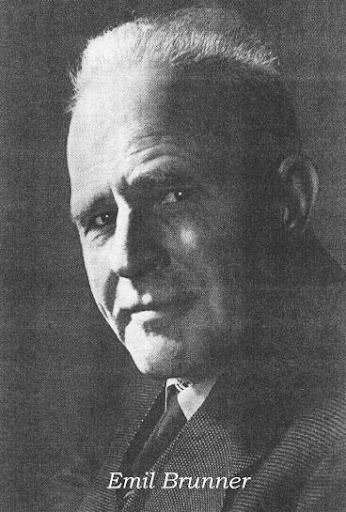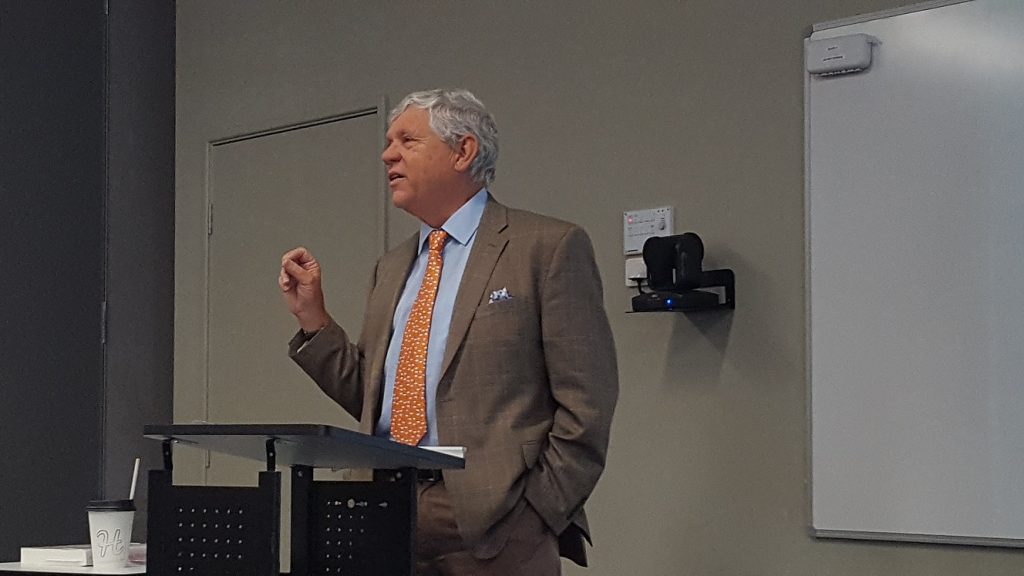God’s Will for Humankind
 In his reflection on the nature of human being, Emil Brunner suggests that the ‘image of God’ is a dynamic becoming:
In his reflection on the nature of human being, Emil Brunner suggests that the ‘image of God’ is a dynamic becoming:
He created man as a personal being, that is as a being that does not simply develop of itself into that for which God created it, but rather as a being who achieves his destiny only by saying his ‘yes’ to it (51).
Persons achieve or realise their ‘true’ humanity as they hear and receive the Word of God addressed to them. In chapters 10-13 of his little book Our Faith he explores the nature and contours of this Word, beginning with the Law.
Brunner begins with human experience of ‘law’ in general: our experience of cultural and social laws, of the laws of physics, of the human freedom and sense of autonomy that tempts us to think that we might be a ‘law unto oneself.’ Perhaps we can be even our own god! Yet, says Brunner, we find our autonomy limited and ultimately doomed. We find ourselves in environments we are unable to change or to bend to our will. We are confronted, finally, by the inevitability of death and with it all our God-pretensions. Brunner thus argues from a learned sense of law to establish an understanding of that which stands over against us and for which we are responsible: the Law of God.
The divine law is God’s will for humankind. “Every man, Jew or Christian, believer or atheist, cultured or uncultured, has some knowledge of this law. Every man has the consciousness of ‘responsibility’” via the faculty of conscience (46). This law is a reflection of the Creator’s good will for human life and it is just as inviolable as the laws of nature (47). Further, God has supplemented conscience by giving his people a written Law which is really a reiteration of “the natural laws of true human life” (46).
God’s law reveals that God wants something of us and that we are accountable for it. What is it that God desires? Brunner’s answer is threefold: something new every moment (!), only a few things—the Ten Commandments, and indeed, only one thing—the first commandment, for “he who keeps the first commandment keeps all the rest” (49). To have God alone as our God is to have a Master and thereby to forsake all alternatives, including especially the desire to be our own master. “God wants only that we should be that for which He created us. He created us ‘in His image’” (49). In binding us to himself God binds us also to others for the command to love God includes within itself the command to love our neighbour.
The Commandment of God is what God wants of us. But if we understand the words concerning the image of God, we also know what God wants for us. That God first loved us, before He demanded anything of us, and that He demands nothing more than that we should accept His love, that is, react to love with love, is simply what we call faith. … God’s incomprehensible, undeserved Love; and whosoever does that fulfils the will of God (49-50, original emphasis).
Of course, humanity has failed to keep God’s commandments and his law. We have supplanted God’s rule in the attempt to be our own master, seeking to live without and apart from God. We misuse our freedom of choice to do that which God does not will.
But God in His creative goodness, having given man freedom to choose for himself, gave him something more in that when he sinned he might not wholly corrupt his life and the life of others, might not wholly deviate from God’s way. This gift is the Ordinances of God (52).
The ordinances of God are those regularities of the natural ‘order’ in which human life is set. More particularly, they are limits and realities implanted in our very nature by God, which we can know intuitively, and which we can but ought not to transgress.
The most important of these ordinances is the fact that God has so organized human life that no man can live for himself. He cannot live without the other. Man needs woman, woman needs man. … Human life is so ordered by God because God has created man for love (53).
The ordinances of God can be endangered by human wilfulness, and, says Brunner, this has never been more apparent in world history than ‘today’ (53). The individual’s will for mastery, for autonomy, for independence tears at the very fabric of relationship and society.
The man who recognizes nothing higher than reason becomes ‘independent’—he no longer needs others, he is his own master—even his own God. And then human fellowship is dissipated like a string of pearls when the cord is cut. What binds us together is the Ordinances of God, behind which stands God’s love. He alone who is bound to God, and through God to his neighbour, can really become a man (54).
God’s address to humanity takes not only the form of law but also promise. Indeed, “God is not primarily the lawgiver, but the lifegiver” (55). The law functions to make us aware of our failure to do what God wills. But in itself it is a gift of divine love given to us for our good. Brunner acknowledges that the commandments do not begin with Thou shalt Not but with I am the Lord your God who brought you out of the land of Egypt, from the house of bondage. All humanity have some inkling of the divine demand but the knowledge of the promise is strictly the message of the Bible.
That is the biblical message, not what God wants of us, but what He desires for us; no what we should do, but what God does and gives. The Law of God is everywhere, the Promise of God is only in the Bible—the promise, namely, that God comes to His sick, rebellious people, to heal them, the message of the ‘Saviour,’ the healing, saving, forgiving, and redeeming God. This promise is really the Word of God. … God desires nothing of us save that we allow Him to bestow life upon us (57, original emphasis).
